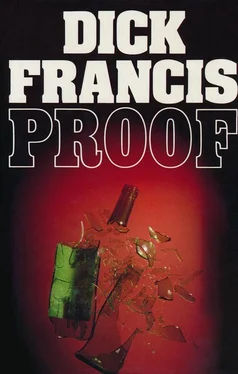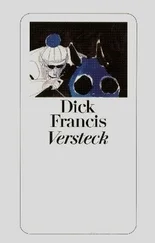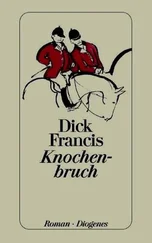My thanks to
MARGARET GILES
of
PANGBOURNE WINES
who taught me her business
and to
BARRY MACKANESS
and
my brother-in-law
DICK YORKE,
wineshippers
and to
LEN LIVINGSTONE-LEARMONTH
long-time friend.
Agony is socially unacceptable. One is not supposed to weep. Particularly is one not supposed to weep when one is moderately presentable and thirty-two. When one’s wife has been dead for six months and everyone else has done grieving.
Ah well, they say: he’ll get over it. There’s always another pretty lady. Time’s a great healer, they say. He’ll marry again one day, they say.
No doubt they’re right.
But oh dear God... the emptiness in my house. The devastating, weary, ultimate loneliness. The silence where there used to be laughter, the cold hearth that used to leap with fire for my return, the permanent blank in my bed.
Six months into unremitting ache I felt that my own immediate death would be no great disaster. Half of myself had gone; the fulfilled joyful investment of six years’ loving, gone into darkness. What was left simply suffered... and looked normal.
Habit kept me checking both ways when I crossed the road; and meanwhile I tended my shop and sold my wines, and smiled and smiled and smiled at the customers.
Customers came in all possible shapes, from the school children who bought crisps and cola because I was near the bus stop, to the sergeants’ mess of the local barracks: from pensioners saving for apologetic half bottles of gin to the knowledgeably lavish laying down port. Customers came once a year and daily, with ignorance and expertise, for happiness and comfort, in gloom and insobriety. Customers ranged from syrup to bitters, like their drinks.
My foremost customer, one Sunday morning that cold October, was a racehorse trainer splashing unstinted fizz over a hundred or so guests in his more or less annual celebration of the Flat races his stable had won during the passing season. Each autumn as his name came high on the winners’ list he gave thanks by inviting his owners, his jockeys, his ramifications of friends to share his satisfaction for joys past and to look forward and make plans for starting all over again the following spring.
Each September he would telephone in his perpetual state of rush. Tony? Three weeks on Sunday, right? Just the usual, in the tent. You’ll do the glasses? And sale or return, of course, right?’
‘Right,’ I would say, and he’d be gone before I could draw breath. It would be his wife Flora who later came to the shop smilingly with details.
Accordingly on that Sunday I drove to his place at ten o’clock and parked as close as I could to the large once-white marquee rising tautly from his back lawn. He came bustling out of his house the moment I stopped, as if he’d been looking out for me, which perhaps he had: Jack Hawthorn, maybe sixty, short, plump and shrewd.
‘Tony. Well done.’ He patted me lightly on the shoulder,his usual greeting, as he habitually avoided the social custom of shaking hands. Not, as I had originally guessed, because he feared to catch other people’s contagious germs but because, as an acid racing lady had enlightened me, he had ‘a grip like a defrosting jellyfish’ and hated to see people rub their palms on their clothes after touching him.
‘A good day for it,’ I said.
He glanced briefly at the clear sky. ‘We need rain. The ground’s like concrete.’ Racehorse trainers, like farmers, were never satisfied with the weather. ‘Did you bring any soft drinks? The Sheik’s coming, with his whole teetotal entourage. Forgot to tell you.’
I nodded. ‘Champagne, soft drinks and a box of oddments.’
‘Good. Right. I’ll leave you to it. The waitresses will be here at eleven, guests at twelve. And you’ll stay yourself, of course? My guest, naturally. I take it for granted.’
‘Your secretary sent me an invitation.’
‘Did he? Good heavens. How efficient. Right then. Anything you want, come and find me.’
I nodded and he hurried away, taking his life as usual at a trot. Notwithstanding the secretary, a somewhat languid man with a supercilious nose and an indefatigable capacity for accurate detailed work, Jack never quite caught up with what he wanted to do. Flora, his placid wife, had told me, ‘It’s Jimmy (the secretary) who enters the horses for the races, Jimmy who sends out the bills, Jimmy who runs all the paperwork single-handed, and Jack never so much as has to pick up a postage stamp. It’s habit, all this rushing. Just habit.’ But she’d spoken fondly, as everyone did, more or less, of Jack Hawthorn: and maybe it was actually the staccato energy of the man which communicated to his horses and set them winning.
He always invited me to his celebrations, either formally or not, partly no doubt so that I should be on the spot to solve any booze-flow problems immediately, but also because I had myself been born into a section of the racing world and was still considered part of it, despite my inexplicable defection into retail liquor.
‘Not his father’s son,’ was how the uncharitable put it. Or more plainly, ‘Lacks the family guts.’
My father, a soldier, had won both the Distinguished Service Order and the Military Gold Cup, dashing as valiantly into steeplechase fences as he had into enemy territory. His bravery on all battlefields had been awe-inspiring, and he died from a broken neck on Sandown Park racecourse when I was eleven, and watching.
He had been forty-seven at the time and remained, of course, at that age in the racing world’s memory, a tall, straight, laughing, reckless man, untouched, it still seemed to me, by the world’s woes. No matter that he was not an ideal shape for jockeyship, he had resolutely followed in the wake of his own father, my grandfather, a distant Titan who had finished second one year in the Grand National before covering himself with military glory in World War One. My grandfather’s Victoria Cross lay beside my father’s DSO in the display case I had inherited. It was their dash, their flair, their dare-devilment that they had not passed on.
‘Are you going to grow up like your father, then?’ had been said to me in friendly, expectant fashion countless times through my childhood, and it had only slowly dawned on everyone, as on me, that no, I wasn’t. I learned to ride, but without distinction. I went to Wellington, the school for soldiers’ sons, but not in turn to Sandhurst to put on uniform myself. My mother too often said, ‘Never mind, dear,’ suffering many disappointments nobly; and I developed deep powerful feelings of inferiority, which still lingered, defying common sense.
Only with Emma had they retreated to insignificance, but now that she had gone, faint but persistent, they were back. A discarded habit of mind insidiously creeping into unguarded corners. Miserable.
Jimmy, the secretary, never helped. He sauntered out of the house, hands in pockets, and watched as I lugged three galvanised wash tubs from the rear of my van.
‘What are those for?’ he said. He couldn’t help looking down that nose, I supposed, as he topped six feet four. It was just that his tone of voice matched.
‘Ice,’ I said.
He said, ‘Oh,’ or rather ‘Ay-oh,’ as a dipthong.
I carried the tubs into the tent, which contained a row of trestle tables with tablecloths near one end and clusters of potted chrysanthemums round the bases of the two main supporting poles. The living grass of the lawn had been covered with serviceable fawn matting, and bunches of red and gold ribbons decorated the streaky greyish canvas walls at regular intervals. In one far corner stood a blower-heater, unlit. The day was marginally not cold enough. The tent was almost festive. Almost. Jack and Flora, and who could blame them, never wasted good cash on unnecessaries.
Читать дальше












